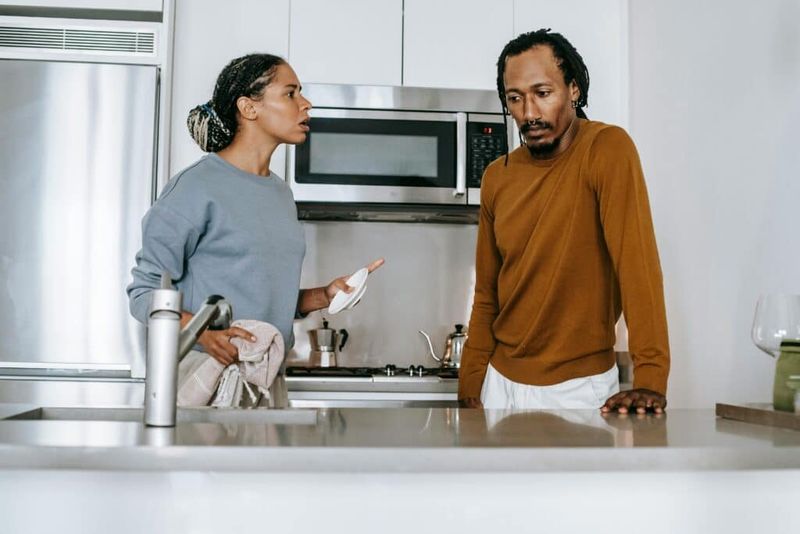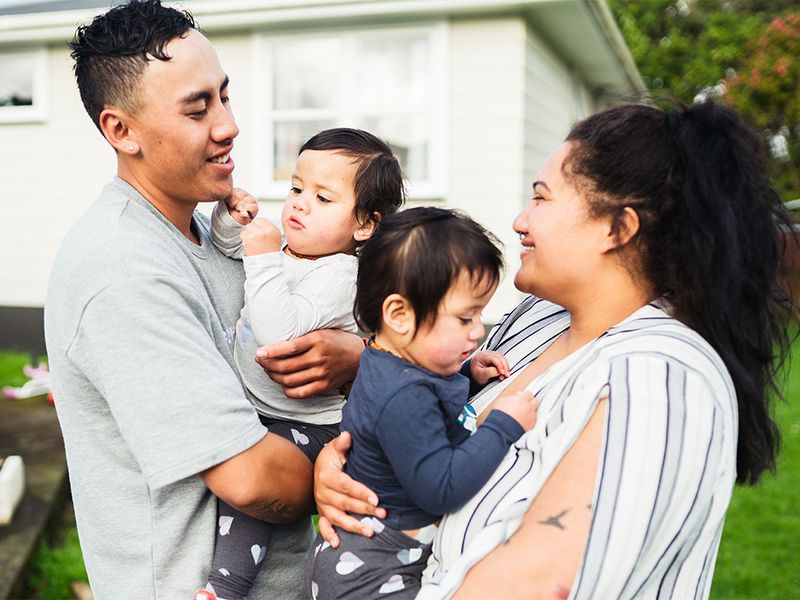The ring is gorgeous. The champagne was cold. The “YES!” was screamed, sobbed, and posted all over Instagram. But now what? Before you sprint down that aisle or get lost in seating charts and cake tastings, let’s hit pause—just for a moment—and talk about the stuff that actually matters.
Porque love is beautiful, but lasting love? That’s built on clarity, honesty, and some seriously uncomfortable questions that most couples avoid until it’s way too late.
So, if you want a marriage that goes beyond the fairytale, here are 15 essential questions to ask your partner—and yourself—before you say “I do.” This is about building something unshakeable. Something real. Something that lasts long after the honeymoon bags are unpacked.
1. What does “forever” actually look like to you?
You know that moment when someone asks, “Where do you see yourself in five years?” Now make it fifty, and add someone else’s dreams to the mix. Forever isn’t just a word we toss around with diamond rings and hashtags—it’s the actual blueprint for what comes after the “I do.”
Are you imagining Friday nights at home, loud holiday dinners, or a passport packed with stamps? Maybe your vision is all about a quiet home and a garden full of tomatoes. The point: forever means wildly different things to each of us.
If you both quietly want different endgames, there’s a storm brewing. Getting crystal clear on what “forever” means to you (and to them!) is the first step to making sure your futures look more like a team effort and less like two ships passing in the night.
2. How do we handle conflict—really?
It’s easy to act like you’ll always be the couple that never fights—until you’re two hours into a silent stand-off about dirty laundry. The truth? Everybody argues. It’s not about who’s right, but how you both show up when things get messy.
Do tempers flare, voices raise, doors slam—or do you try to smooth things over and pretend it’s all fine until it explodes later? Or maybe you both crack jokes to avoid the real stuff. Knowing whether you’re a talker, a sulker, or a peacemaker matters more than you think.
The healthiest couples aren’t conflict-free. They just know how to fight fair, apologize without pride, and leave space for each other’s flaws. That’s the real win—not who left the cap off the toothpaste.
3. What role does each of us expect to play in the household?
Chore charts aren’t romantic, I know. But trust me: your future happiness might just depend on who’s grabbing the broom and who’s tackling the bills. Nobody wants to be blindsided by surprise expectations.
Are you secretly hoping for a partner who cooks every meal, or are you the one who likes spreadsheets and pays the bills with military precision? Maybe you’re dreaming of 50/50, but your partner grew up thinking one person does it all. Clarity keeps resentment from creeping in like mold under the sink.
Having an honest talk about roles—without shaming anyone for their upbringing—can save you from arguing about chores at 11 p.m. five years down the line. It’s not about tradition; it’s about fairness.
4. What’s your relationship with money—and how does it affect mine?
Talking money is awkward, but tiptoeing around it is a recipe for heartache. Are you a saver who gets hives at the word “splurge,” or does payday mean Amazon packages at the door? Debt, credit scores, budgeting—these things matter.
Some couples operate with joint accounts; others keep things separate. Neither is wrong, but hiding a wild credit card bill or being super secretive can turn into a full-blown trust crisis. Money doesn’t buy happiness, but it sure can buy drama if you’re not upfront.
The goal isn’t to match dollar-for-dollar habits, but to understand how your attitudes about money will mesh (or clash) when real life gets expensive. Better to feel awkward for an hour than resentful for a lifetime.
5. Do you want children? When? How many?
Nothing makes people squirm like the baby question, but it’s one of those things you can’t pretend will magically sort itself out. Some folks light up at the thought of a house full of kids; others are happy being a party of two.
It’s not just about whether you want children, either. When, how many, and what you picture parenting looking like are all part of the deal. Maybe one of you wants to adopt, or maybe you have strong feelings about discipline or education.
The only wrong answer is the one you keep to yourself. If this conversation feels scary, that probably means it’s even more important. Honest, sometimes messy talks now will save you from heartbreak later.
6. How do you recharge—and how do we honor that?
Everyone has their own recipe for feeling whole again after a long week. Maybe you crave a night out with friends, while your partner feels best after a quiet afternoon alone with a book. Opposites can attract, but sometimes, they also clash.
The magic happens when you learn each other’s “recharge rituals”—and actually make space for them. Respecting differences in how you both wind down is a sign of true love, not distance.
It’s not selfish to want alone time, and it’s not clingy to want quality togetherness. The trick is finding a rhythm where both needs matter. That’s how you avoid those “You never want to hang out” or “You never give me space” arguments.
7. How do you define cheating—and what breaks trust for you?
Not everyone’s definition of betrayal looks the same. For some, it’s texting an ex. For others, it’s sharing secrets or even just hiding messages. Trust is personal, and if you don’t talk about your boundaries, you might step on a landmine.
Social media, work lunches, “just friends”—there are gray zones everywhere. The rules aren’t universal, but they should be crystal clear between you two. What’s harmless to one person can feel devastating to another.
It’s not about keeping each other on a tight leash, but about respecting where your partner’s line is drawn. The best time to talk about trust? Before it’s broken, not after.
8. Who gets priority—us, the kids, or extended family?
It’s like juggling flaming torches: your marriage, your future kids, your parents, and all those in-laws. Everyone wants a piece of you, and someone’s bound to feel left out. Here’s the catch—if you don’t talk priorities, it’s not just Thanksgiving that ends in tears.
Some people believe family comes first; others think the couple is the foundation. Maybe you want to put your kids above all else, or maybe you want to fiercely protect couple time. It’s not selfish to want your partner to choose you sometimes.
The strongest couples I know have a game plan for these moments. Talk now about who gets the front seat in your life—and agree you’ll adjust when the ride gets bumpy.
9. What does intimacy mean to you?
There’s more to closeness than what happens behind closed doors. For some, it’s all about cuddling under a blanket and sharing secrets. For others, it’s deep conversations or little acts of kindness that make your heart race.
Physical chemistry matters, but it can’t be the glue that holds everything together on tough days. Intimacy is about feeling safe enough to be your weird, vulnerable, real self with someone who loves you anyway.
Figure out what makes you feel deeply connected—words, touch, quality time, inside jokes—and share it. That’s the stuff that keeps love alive long after the passion cools (or when life throws curveballs your way).
10. What’s your communication style when you’re overwhelmed?
There’s nothing like a long week and a minor crisis to show you who retreats and who rallies. Some people clam up when stressed, others get snappy or even burst into tears at commercials. If you don’t get it, misunderstandings multiply.
Learning how your partner reacts under pressure helps you avoid taking things personally. Maybe she needs space and silence, or maybe he needs to talk it out right away. It’s rarely about you—stress just brings out the rawest version of us all.
Understanding each other’s “under pressure” playbook means fewer dramatic blowouts and more “we got this” moments. Communication—especially on hard days—makes or breaks the best teams.
11. What values do we agree on—and where do we differ?
You know what’s hot? Shared values. They’re the secret ingredient that makes a couple unstoppable—or the thing that quietly erodes trust if you ignore them. Faith, politics, parenting, work ethic—these are biggies.
Here’s a truth bomb: you don’t need to agree on everything. But pretending differences don’t exist? That’s a disaster waiting to happen. Voices can be raised, but respect can’t go out the window.
Talking about your core beliefs now means you won’t be blindsided by “Wait, you really think that?” moments later. It’s not about converting each other, but about knowing where you stand—and where you stand together.
12. What does “partnership” mean to you on a hard day?
When life throws you a curveball—job loss, health scare, or just an awful, no-good week—what does being a team actually look like? Some people need a pep talk, others need a partner who just sits quietly and says, “I’m here.”
It’s easy to be your best self when things are smooth, but real partnership is proven when things are downright messy. Are you both willing to stick around for the hard parts, not just the highlight reel?
Talk honestly about the darkest hours and how you want to show up for each other. You’ll thank each other later for showing up strong, even when life feels like it’s falling apart.
13. How do we protect our individuality in marriage?
Married doesn’t mean merged. The happiest couples I know are the ones who still have their own friends, hobbies, and passions. Sometimes, you need a solo dance party or a long walk without your other half in tow.
Maybe you love yoga at dawn while your partner runs with friends. Supporting each other’s alone time is the opposite of neglect—it’s the ultimate respect move. It says, “I see you as a whole person, not just my plus-one.”
Protecting your individuality keeps you interesting and helps your relationship breathe. Don’t lose yourself to coupledom. Cherish what makes you, well, you.
14. What are your biggest fears about marriage?
Admit it: the word “forever” is both thrilling and terrifying. Maybe you’re afraid of messing it up, losing your freedom, or getting hurt. You’re not alone—everyone has their own secret fears about tying the knot.
The magic happens when you bring those fears into the light. Talking about what scares you doesn’t make it more real; it makes it less lonely. Sharing worries shows trust and lets your partner support you in ways you didn’t know you needed.
No partnership is fearless, but the bravest couples talk about the monsters under the bed. Honesty here builds a safe place for both of you to land when doubts creep in.
15. If everything fell apart tomorrow, would we choose each other again?
Here’s the real kicker: would you still pick each other if you lost everything? Not the house, the wedding, or the plans—just the two of you, stripped down to the basics. Real love isn’t about the easy days; it’s about the hard choices.
Choosing your partner again, especially when things get rough, is the truest test of connection. Would you stand by them if the world fell out from under you? Would they say yes to you, even when the shine is gone?
Marriage is a daily choice, not a one-time promise. The answer to this question is your compass for getting through anything together.
















